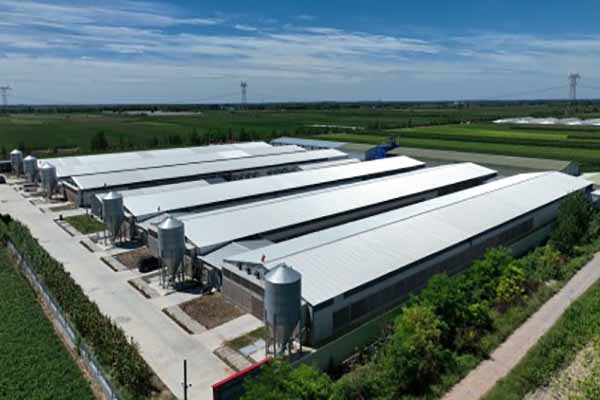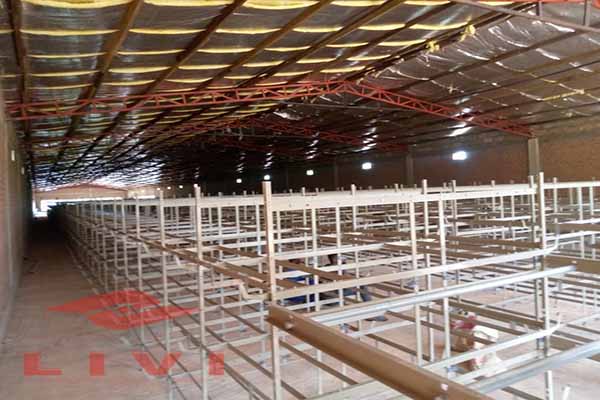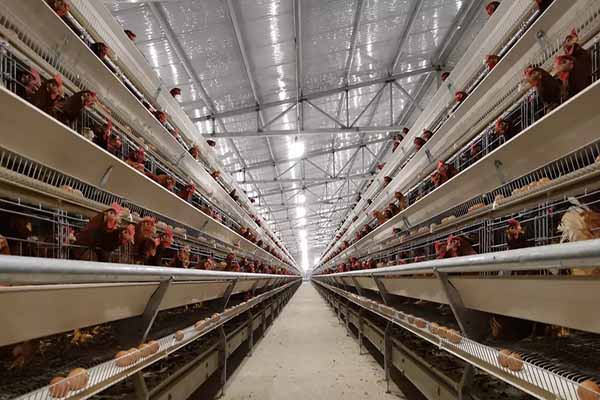How Much Does It Cost to Start a Chicken Farm in Nigeria?
Time : 2025-06-28
Starting a chicken farm in Nigeria can be an exciting venture, providing an opportunity to capitalize on the growing demand for poultry products in the country. However, understanding the initial investment required is crucial for any aspiring poultry farmer. In this comprehensive guide, we’ll delve into the various factors that contribute to the cost of starting a chicken farm in Nigeria, with a focus on the necessary equipment and facilities.
Understanding the Market
Before diving into the costs, it’s essential to understand the market for chicken farming in Nigeria. The country has a high demand for poultry products due to its growing population and the cultural preference for meat consumption. This demand offers a promising market for chicken farmers, but it also means that competition can be fierce.
Initial Costs Breakdown
Starting a chicken farm in Nigeria involves several key costs, which can be broadly categorized as follows:
1. Land and Facilities
The first cost is acquiring land for your farm. The price of land varies significantly across Nigeria, depending on the location. Prime locations in urban or semi-urban areas can be more expensive, while rural areas may offer more affordable options. Additionally, you’ll need to construct or renovate facilities for the chickens, which includes coops, feed storage areas, and water supply systems.

2. Chicken Breed and Purchase
The choice of chicken breed will influence the initial cost. Broilers are typically more cost-effective to raise than laying hens due to their faster growth rate. The cost of purchasing chickens varies, with broilers costing around N400 (about $2) each, while laying hens might cost between N500 (about $2.50) and N700 (about $3.50) each, depending on the breed and age.
3. Feeds and Nutrition
Feeds are a significant expense in chicken farming. The cost of feed can vary based on the quality and type of feed. On average, you can expect to spend between N200 (about $1) and N400 (about $2) per chicken per month on feed. This cost can be reduced by growing your own feed crops like corn and soybeans.
4. Equipment and Supplies
Professional equipment can significantly impact the cost of starting a chicken farm. This includes feeders, waterers, incubators, hatchers, and other poultry management tools. The quality and brand of equipment can vary widely, with higher-end options offering better durability and efficiency. For a small-scale farm, you might spend around N50,000 (about $250) to N150,000 (about $750) on equipment.
5. Labor and Management
The cost of labor will depend on whether you choose to hire workers or manage the farm yourself. If you hire workers, you’ll need to consider wages, benefits, and insurance. Management costs also include utilities, such as electricity and water, as well as any other operational expenses.
Calcu lating the Total Cost
lating the Total Cost
For a small-scale chicken farm with an initial investment in mind, here’s a rough estimate of the costs:
- Land and Facilities: N500,000 – N1,000,000 (about $2,500 – $5,000)
- Chicken Breed and Purchase: N200,000 – N500,000 (about $1,000 – $2,500)
- Feeds and Nutrition: N400,000 – N1,000,000 (about $2,000 – $5,000)
- Equipment and Supplies: N50,000 – N150,000 (about $250 – $750)
- Labor and Management: N100,000 – N500,000 (about $500 – $2,500)
Adding these up, the total cost to start a small-scale chicken farm in Nigeria could range from N1,450,000 (about $7,250) to N3,150,000 (about $15,750). However, these figures are approximate and can vary based on the scale of the farm and specific location.
Considerations for Sustainability and Growth
When planning your chicken farm, it’s important to consider the long-term sustainability and potential for growth. Investing in high-quality equipment and feed systems can lead to increased productivity and lower long-term costs. Additionally, exploring organic and free-range farming methods can command higher prices for your products and improve your farm’s reputation.

Conclusion
Starting a chicken farm in Nigeria requires careful planning and a significant initial investment. By understanding the various costs involved and considering the market demand, you can make informed decisions that will set your farm up for success. Remember, the key to a profitable chicken farm lies in efficient management, quality inputs, and a market-driven approach.











